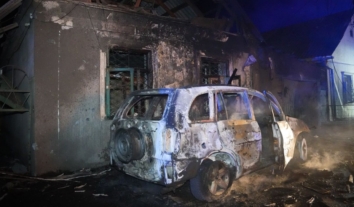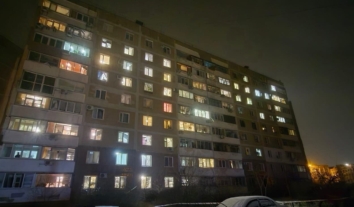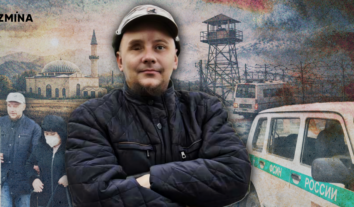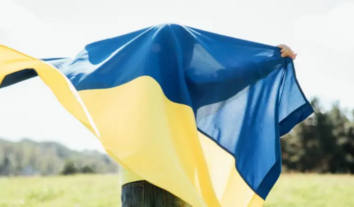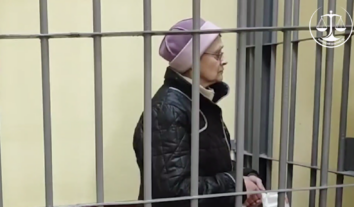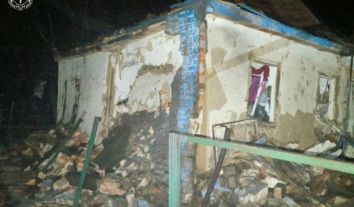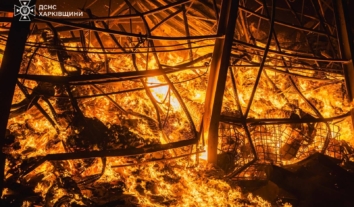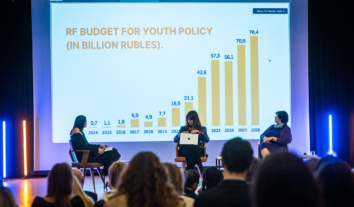80% of collaboration cases are heard in absentia, without the accused present – ZMINA
Current Ukrainian legislation on collaboration fails to account for the atmosphere of fear and coercion to cooperate with Russian occupiers when prosecuting individuals. This is in contrast to international humanitarian law, which allows civilian populations to cooperate with an occupying power to ensure normal daily life, as discussed by Onysiia Syniuk, a legal analyst with the Human Rights Center ZMINA, on the “Donbas.Realii” program.
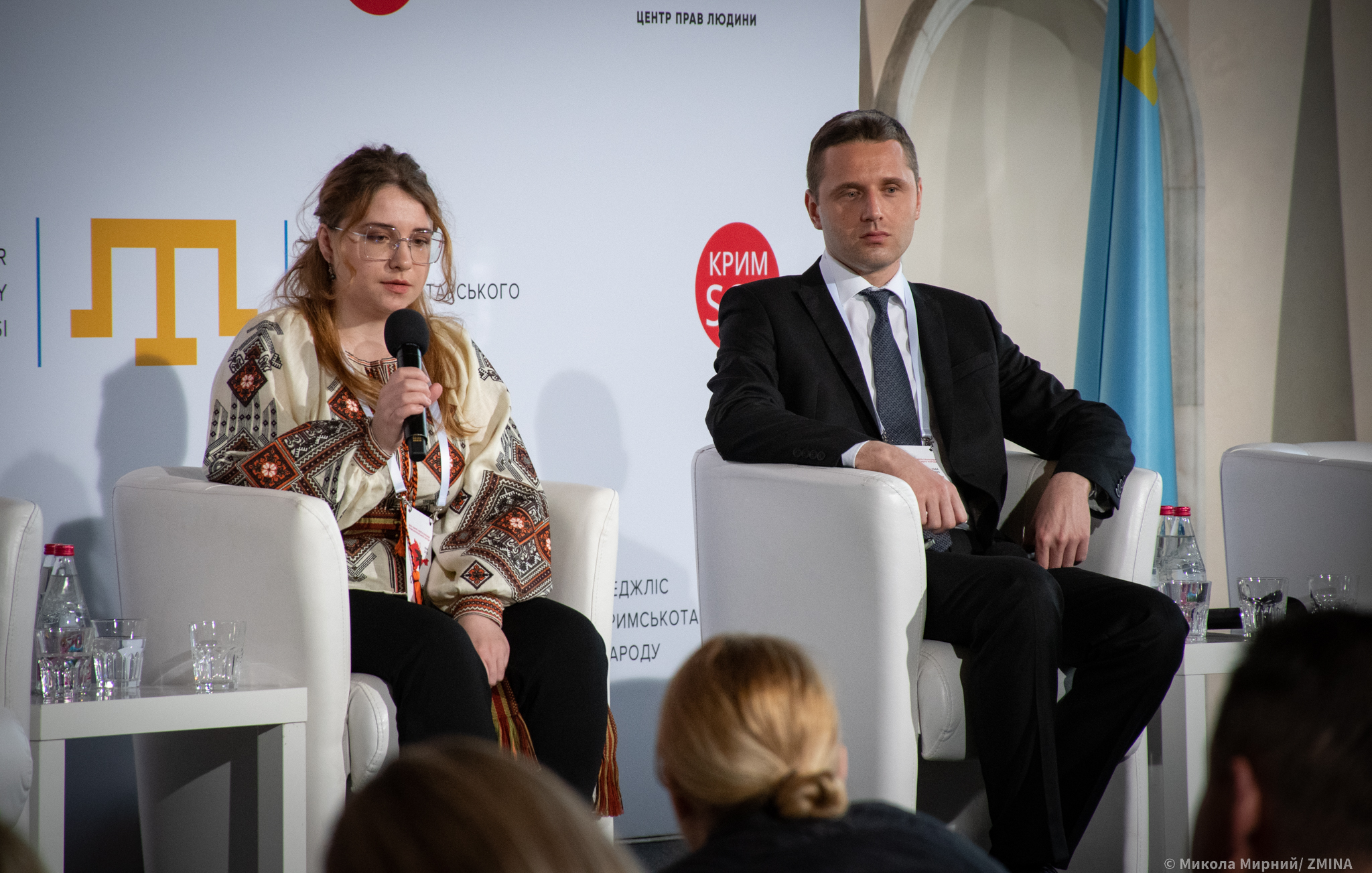 Onysiia Syniuk
Onysiia SyniukOnysiia Syniuk noted that among 10,000 criminal proceedings, 80% of cases, including those concerning organizational and administrative functions in occupation administrations or holding positions in law enforcement agencies, are heard in absentia, meaning without the accused present in the courtroom.
Their interests are represented solely by a lawyer who has no contact with the accused and cannot fully present why the person acted in a certain way, what their motivation was, what prompted them, or if there was coercion.
“This already imposes certain limitations on how thoroughly a case can be examined. If we look at the entire body of cases, we can observe a certain tendency towards mechanical justice based on a formula – even a Supreme Court ruling acknowledges that the mere fact of holding a position is sufficient. The accused’s intent is not substantively examined, nor is the purpose for which the person took up this position or what they did in it. The mere fact of holding a position is deemed absolutely sufficient for conviction,” Syniuk explained.
She stated that occupation administrations pressure residents of temporarily occupied territories (TOTs) to cooperate in all spheres of life on the peninsula.
“If we look, for example, at the mass persecutions of local government representatives that occurred at the beginning of the full-scale invasion, the first thing Russian representatives did in the occupied territory was try to persuade people to cooperate, to leverage their authority in local communities. If it started with proposals and persuasion, it escalated to coercion, unlawful detentions, and torture with the condition of release if they agreed to cooperate,” Syniuk pointed out.
The Russian Federation engaged in such unlawful actions against firefighters and rescue workers, for instance.
“For example, at the Zaporizhzhia Nuclear Power Plant, workers cannot simply abandon their workplaces. They are responsible for community safety, as they work at such a dangerous facility. The Russian Federation has subordinated the plant to ‘Rosatom,’ essentially creating an occupation institution for which these people now work,” she explained.
The human rights expert indicated that the law amending the Criminal Code was hastily adopted by the Verkhovna Rada in March 2022. This was primarily done to prevent cooperation.
“However, we are now three years into the full-scale invasion. Moreover, we must also remember the territories that have been occupied for 11 years. This law was adopted without considering the duration of this occupation,” Onysiia Syniuk explained.
Synuik believes that the legislator’s warning to citizens not to cooperate with the occupier in any form might have been effective in a short-term occupation. However, in a prolonged occupation, it is impossible not to interact with the occupation administration in any way. Furthermore, the Russian Federation does everything possible to force the population to interact with it, the human rights expert emphasised.
She noted that the article in the Criminal Code on collaborative activities is formulated to encompass all types of activities that can be performed in TOTs, with no exceptions for professions.
“There are certain exceptions where individuals are not directly persecuted, such as doctors. But if we are talking about a chief physician, for example, since that position involves a certain administrative function, there are cases related to such instances,” Onysiia Syniuk stated.
Recently, a court considered the case of Viktoriia Krykunova, a resident of Svatove, who took a job at a pension fund during the temporary occupation of the city.
“Immediately after the occupation, Ukrainian enterprises, organisations, and institutions ceased to operate, and the entire population remained in an information vacuum. I went to work at the pension authority in the occupied territory. I do not hide this and have spoken about it from day one. I did nothing criminal or illegal; I did not harm our state. I only went to work with the motive of helping my family leave, helping people who remained in the occupied territory simply survive, simply exist,” the accused explained her actions.
According to the defence counsel, not every job in TOTs can be criminal or constitute the objective side of a criminal offence.
“This is because international humanitarian law, particularly the Hague Regulations of 1907 and the Geneva Conventions, stipulates that civilians may cooperate with an occupying power if it is necessary to ensure the normal functioning of the civilian population,” explained Anna Kozmenko, a lawyer at the Ukrainian Helsinki Human Rights Union.
Onysiia Syniuk indicated that since the introduction of this article, new draft laws with proposed amendments have been registered in the Verkhovna Rada. However, none of them are comprehensive or address the root cause of this problem.
“The main problem is not just the wording, but the lack of understanding of how people survive under occupation. We constantly talk about our statistics regarding war crimes, including those in the TOTs. But when we look at the practice of cases concerning crimes against national security, it does not take into account that crimes are being committed against our population under occupation, that it is generally an atmosphere of coercion and fear. This is not reflected in any of the draft laws currently registered in parliament. Moreover, none of them are seeing any movement. This essentially signals that there is no political will to address this issue,” the human rights expert stated.
She described the question of where the “red line” lies – what activities in TOTs are normal and what constitutes a crime – as complex. However, she pointed to certain guidelines that can be relied upon, particularly the norms of International Humanitarian Law.
For example, the First Additional Protocol to the Geneva Conventions provides, among other things, for the functions of civilian protection organisations, including evacuation, rescue, firefighting, and so on.
“That is to say, such functions to ensure vital activity can already be utilised. But, specifically, one must also assess this balance: which activity, in fact, harms the population and national security, and which does not cause such harm. The mere fact of cooperation without negative consequences and without the intent to cause harm should not be criminalised,” she indicated.
Recently, the Human Rights Centre ZMINA published an analytical report titled “Responsibility for Collaboration: How Has Judicial Practice Changed?”, in which human rights advocates analysed verdicts in the Unified State Register of Court Decisions.
Olha Skrypnyk, Head of the Crimean Human Rights Group and coordinator of the International Crimea Platform Expert Network, expressed during “Coalition Talks” her conviction that collaboration cases pose a challenge for the state.
Skrypnyk noted that there are currently known examples of criminal cases that threaten the successful reintegration of liberated territories. She believes that how quickly Ukraine normalises life in these territories will depend on the proper regulation of legislation on collaboration.
Earlier, Tetiana Pechonchyk, Head of the Human Rights Centre ZMINA, stated during the presentation of a shadow report for the European Commission that, unlike other EU candidate countries, Ukraine must provide answers and develop approaches to a number of challenges during the de-occupation and reintegration of liberated territories.


